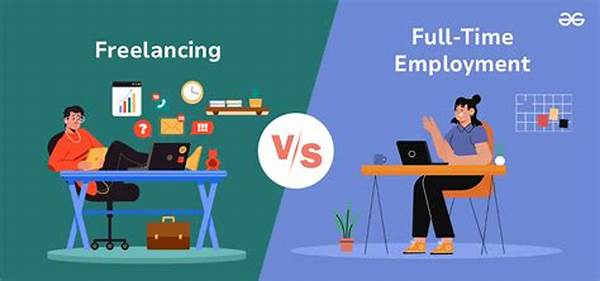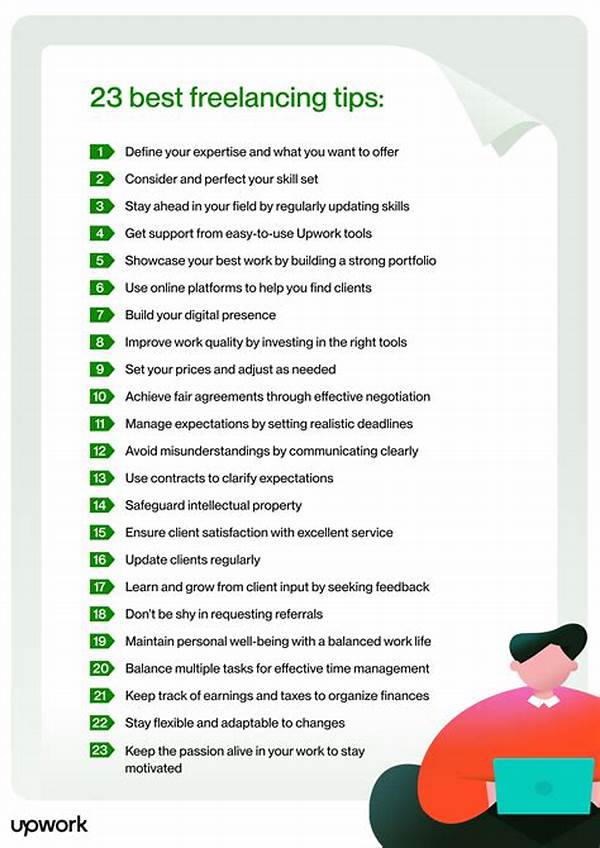
In a world that thrives on innovation and flexibility, many individuals find themselves at a crossroads between freelancing and traditional employment. The allure of being your boss can be tempting, yet the stability of a regular paycheck is comforting. So, what is freelancing vs employment, and how can you decide which path suits your personality and career ambitions? This article will break down both options, highlighting the pros and cons of each to help inform your decision.
Read More : Why Freelancing Is The Future Of Work For Gen Z
Freelancing is often associated with independence and flexibility, offering individuals the ability to take control of their schedules, choose their projects, and work from virtually anywhere in the world. This freedom can be incredibly appealing to creative and self-motivated individuals. On the flip side, freelancing requires hustle, discipline, and a strong network to make it work. Without the safety net of a regular salary, freelancers depend on their ability to consistently secure new projects and manage their finances wisely.
On the other hand, traditional employment often comes with stability, including a steady income, benefits, and a clear career progression path. Employees enjoy the security of a fixed payment structure and the chance to grow within a company, building long-term relationships with colleagues and clients. While this setup can provide peace of mind, it may lack the flexibility some individuals crave, leading to a feeling of being confined within a 9-to-5 routine.
Understanding the Differences Between Freelancing and Employment
Freelancing and employment represent two sides of the same coin, offering unique advantages and challenges. For those driven by a spirit of entrepreneurship and creativity, freelancing offers an environment where you can thrive on passion projects while dictating the direction of your career. Meanwhile, those who prefer structure and predictability might find traditional employment more beneficial, with established roles and security.
—
Introduction to What is Freelancing vs Employment
In today’s dynamic job market, the choice between freelancing and traditional employment has become a topic of great interest and debate. With the rise of the gig economy and the increasing desire for work-life balance, many professionals are seeking flexible working arrangements that align with their personal needs and aspirations. So, what exactly is freelancing vs employment, and how do they cater to different personalities and career goals?
Understanding these contrasting paths is crucial for anyone at a career crossroads. Freelancing, at its core, is about independence. It’s the land of opportunity for those who value flexibility, creativity, and control over their work. Freelancers enjoy the luxury of choosing projects that they are passionate about and setting their schedules, making it an ideal choice for self-starters. However, with freedom comes responsibility, and freelancers must be adept at managing their time, finances, and client relationships to succeed.
Traditional employment, conversely, offers a level of security and clarity that freelancing does not. Structured roles within an organization often come with the benefits of a consistent paycheck, healthcare, retirement plans, and the opportunity to develop within a defined career path. Employees can build long-standing relationships with coworkers and gain a sense of community and camaraderie. However, it often requires conforming to organizational rules and schedules, which might not suit everyone’s lifestyle.
The Pros and Cons
When deciding between freelancing and employment, one must weigh the positives and negatives inherent in each. Freelancers often have the upper hand in choosing where and when they work, possibly leading to increased job satisfaction but also entail the risk of unpredictable income and lack of benefits. Conversely, employed individuals might appreciate job security and benefits but may find themselves bound to a rigid schedule or career path that may not align with their evolving aspirations.
Making Informed Choices
Essentially, the choice boils down to personal preferences and professional goals. What is freelancing vs employment to you? It could be a matter of temperament, organizational skills, or financial priorities. Those who value autonomy and can handle the uncertainties of variable income may find freelancing aligns with their values. Those seeking stability, predictability, and career growth within an organizational framework may prioritize traditional employment.
—
Actionable Steps
To make an informed choice between freelancing and employment, consider the following actions:
Choosing Your Path
Making a decision about what is freelancing vs employment requires careful consideration of personal and professional factors. The traditional route offers structured growth and security, but for those with an entrepreneurial spirit and a desire for flexibility, freelancing can offer unique rewards. You’re the architect of your destiny—choose wisely.
—
Exploring the Dynamics: What is Freelancing vs Employment
In the ever-evolving labor landscape, understanding the dynamics of “what is freelancing vs employment” is essential. As trends shift towards more adaptable work arrangements, more people are crafting careers outside traditional employment parameters. Let’s delve deeper into the particulars of these paths and explore key elements that distinguish freelancing from employment.
Flexibility is the cornerstone of freelancing. It allows individuals to define their work-life balance by choosing projects that spark their passion and working during their most productive hours. Particularly appealing to creatives and tech-savvy individuals, freelancing promises autonomy and the thrill of varied experiences. Yet, this versatility necessitates a business mindset—freelancers must juggle tax obligations, client negotiations, and marketing strategies. Those adept at multitasking and self-motivation often thrive in freelancing environments.
In contrast, employment typically requires adherence to predefined structures and routines. Despite this, traditional employment provides a robust groundwork for professional development, offering mentorship, team collaborations, and structured career advancement. Employees can benefit from stable income and perks such as healthcare, which support long-term financial planning. For many, the greatest appeal lies in the predictability and sense of belonging within an organization, though this can sometimes come at the cost of personal autonomy.
Assessing Freelancing vs Employment
Analyzing “what is freelancing vs employment” involves examining personal competencies and priorities. Individuals should assess their risk appetite; freelancing involves financial volatility, while employment offers stable remuneration. Freelancers are entrepreneurs at heart, navigating challenges independently, whereas employees often enjoy the synergy and support that come from working within a company.
Weighing Risks and Rewards
The landscape of freelancing vs employment is dotted with potential risks and rewards. Freelancers bask in diversity and the chance to directly impact their income through hard work and innovation. Yet, inconsistent demand can lead to unstable earnings. Employment offers a more predictable journey, with clear paths for growth but may lack the excitement of novelty and innovation. Your career choice hinges on weighing these factors against personal and professional expectations.
—
Tips for Deciding Between Freelancing and Employment
Crafting Your Career Narrative
Embarking on a career involves making strategic decisions to align your work with personal and financial goals. Evaluating “what is freelancing vs employment” can empower you to choose a path that not only meets your present needs but can evolve with you over time. Both paths offer distinctive opportunities for growth and satisfaction; the key lies in understanding and embracing your priorities and constraints.


